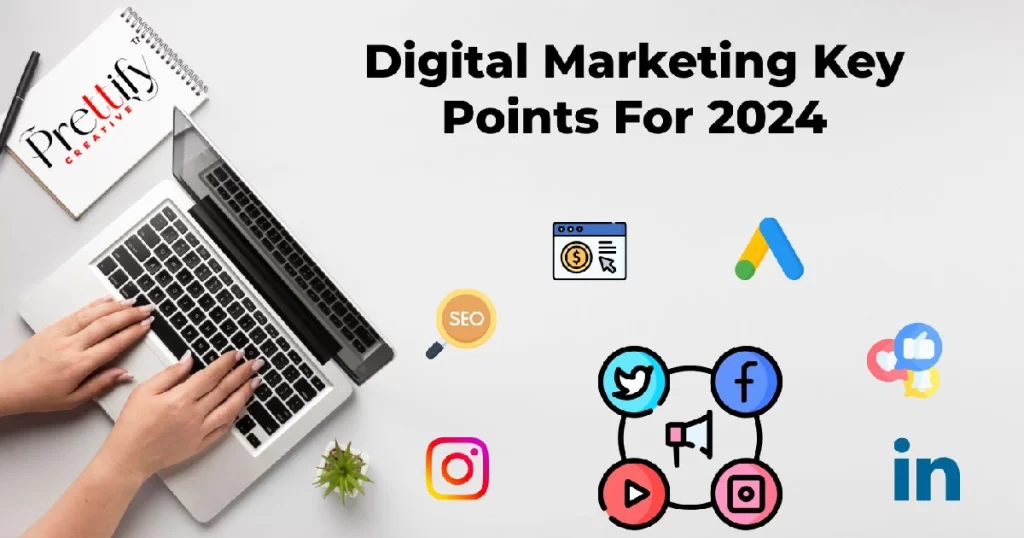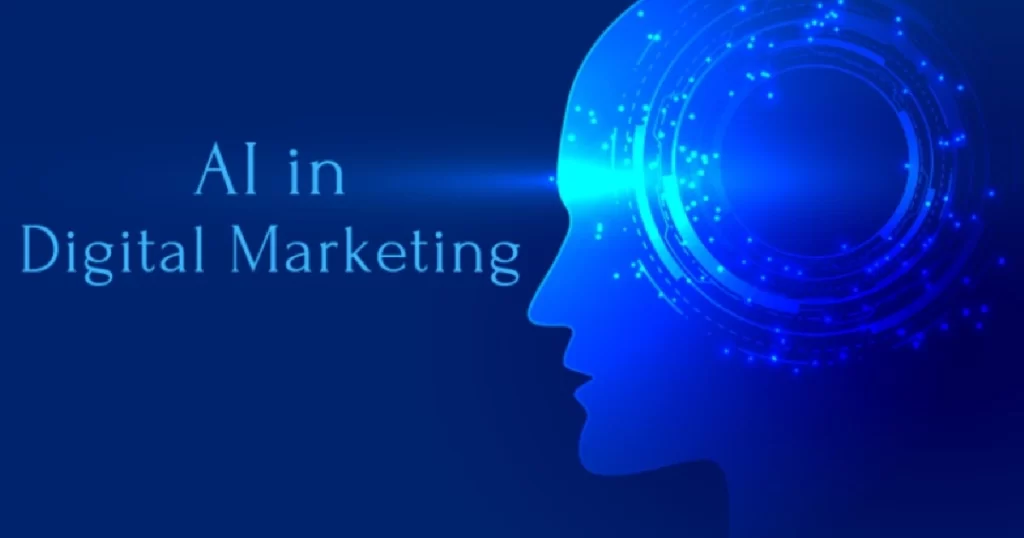Digital marketing key Points for 2024
admin
December 26, 2023
Digital Marketing
admin
December 26, 2023

In the ever-evolving landscape of digital marketing, staying ahead is crucial. As we delve into 2024, several trends are poised to shape the industry. Let’s explore the key digital marketing trends and strategies that will define the year.
The rise of Instagram Threads, Meta’s latest venture, is reshaping social media dynamics. With 100 million monthly users, it’s gaining traction for text updates and public conversations. As engagement on organic social activities declines, the focus shifts to retention. Longer-form videos, like TikTok’s 15-minute uploads, aim to enhance user retention.
Threads’ introduction in July 2023 marked a significant move by Meta. It claims 100 million monthly users, a number set to rise as it expands across regions. Threads serves as a rival to X (formerly Twitter), focusing on text updates and public conversations. This dynamic platform represents a shift from engagement to retention in 2024.

AI’s Exponential Growth,AI’s dominance is evident, with 49% of NASDAQ’s value and 25% of the US stock market attributed to six AI companies. Marketers are urged to take charge of AI strategy, leveraging its self-learning nature to optimize processes, accelerate production, and transform business models.
When choosing an AI project, marketers need to decide whether they want to optimize processes, accelerate production, or transform the business model:
Optimize: Make internal processes more efficient, like using ChatGPT to write marketing briefs.
Accelerate: Enhance existing products or services with AI to increase customer value.
Transform: Create new products, services, or business models using AI.
AI’s unique trait is its ability to improve on its own. This self-learning nature signifies a paradigm shift in technology. As AI evolves independently, marketers must nurture new skills and explore co-creation possibilities.
Google’s EEAT (Experience, Expertise, Authoritativeness, and Trustworthiness) framework is not a ranking factor but a component of its Search Quality Evaluator Guidelines. While this framework has existed for a decade, this year Google added an extra E for ‘Experience’. This is significant as AI cannot generate real-world experience like people can. This gives human content marketers an advantage and cements the importance of having experts write or inform content.
As we embark on a new year, it’s imperative to reassess your digital marketing strategy. This reflection helps utilize the effectiveness of past strategies and highlights areas for improvement. A well-crafted and cohesive strategy not only propels business goals, such as growth and brand awareness, but also serves as a guiding force for your team, channeling their efforts in the right direction.
In 2024, a seamlessly integrated AI strategy becomes imperative, given that only 15% of organizations possess a well-defined AI strategy, according to Mesh-AI research. Beyond AI, other crucial priorities come into focus. Data privacy emerges as a persistent concern, with data breaches and misuse not only incurring monetary losses for brands but also eroding customer trust. The aftermath of data breaches leads to a hesitancy among customers to share personal information, directly impacting engagement and data capture strategies.
Amid these evolving priorities, the digital marketing landscape demands a strategic approach that not only incorporates cutting-edge technologies like AI but also prioritizes data privacy to foster trust and engagement in the ever-evolving digital sphere.
WhatsApp us